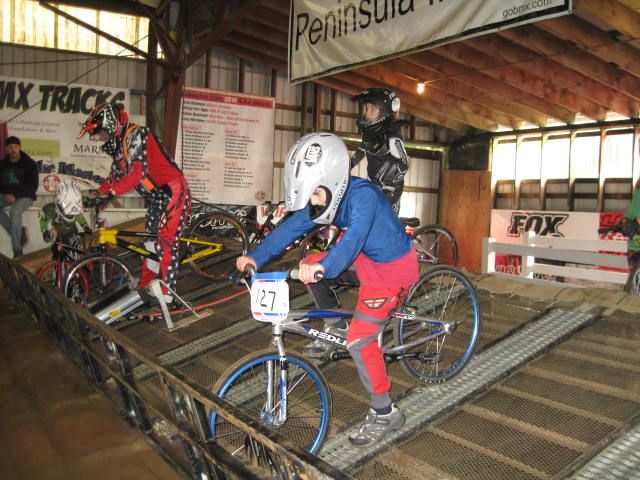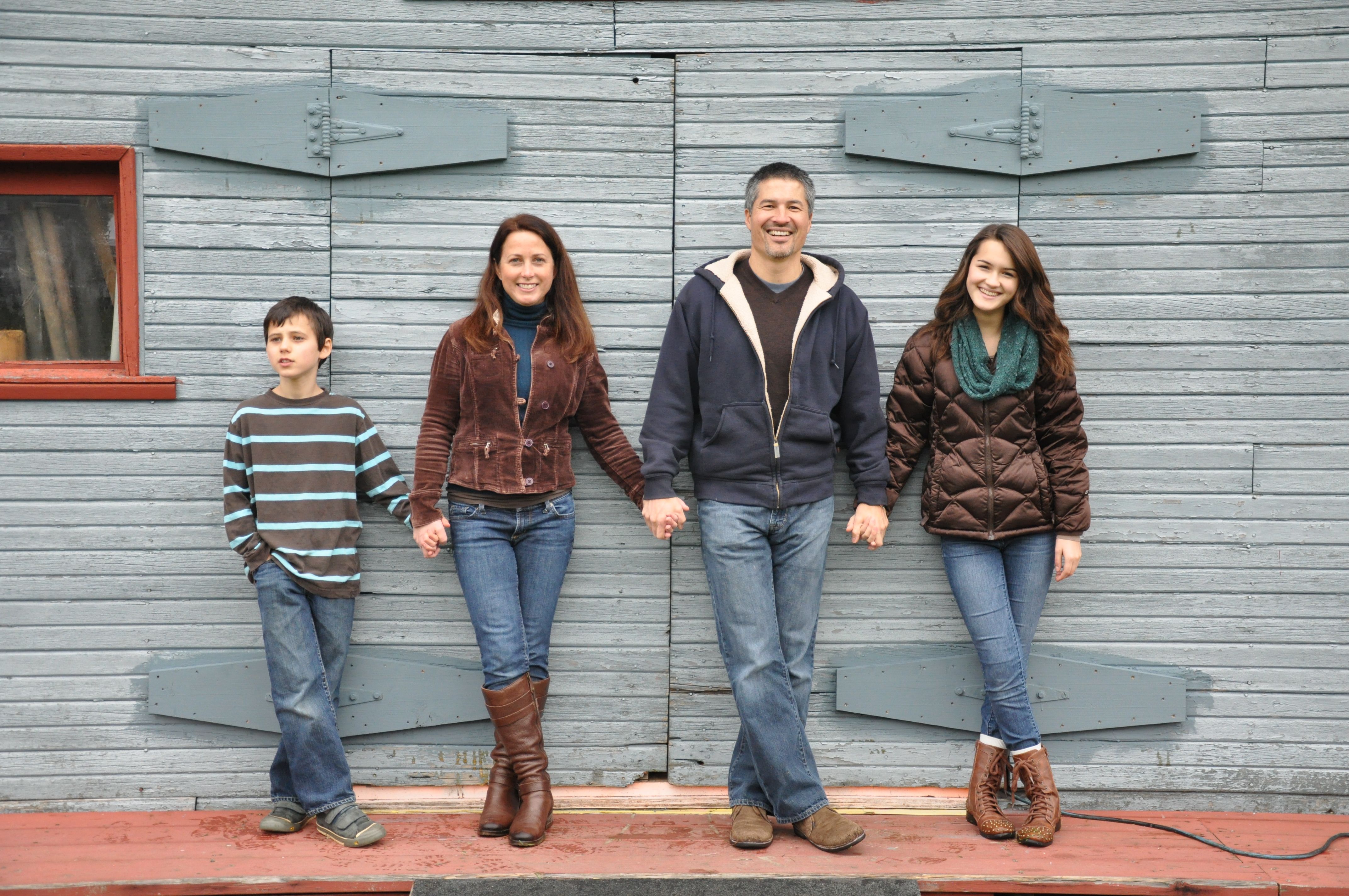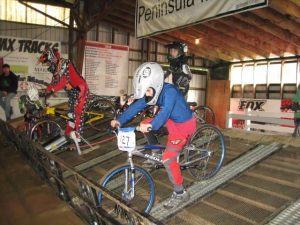 Twelve-year-old Mason is goal-oriented and blessed with many abilities and interests. He’s an avid mountain bike rider, snow skier and water skier, and loves diving, fishing, crabbing, yard work and blackberry picking.
Twelve-year-old Mason is goal-oriented and blessed with many abilities and interests. He’s an avid mountain bike rider, snow skier and water skier, and loves diving, fishing, crabbing, yard work and blackberry picking.
“He’s our nature boy,” says his mom Karen.
When Mason was first diagnosed with autism at age 4, he had a good number of words in his vocabulary, but hadn't progressed to stringing the words together.
He has aphasia, and lacks “a filing system” for language that makes it difficult to speak in sentences. With years of speech therapy, Mason can now speak in 3-5 word sentences to tell people what he needs.
In the beginning after the diagnosis, Karen recalls that the biggest challenge was isolation and feeling like it was easier to just not leave the house.
“When we went out, there were usually tantrums, in the middle of the grocery store or at the Children’s Museum when he would scream when other kids tried to interact with him.”
To find support, Karen and another mother created a support group on Bainbridge Island called Island Autism Moms and Dads that met for dinner, discussed books about autism, and eventually organized an effort to work with the school district to improve education for students with autism.
 The group helped develop an autism education model called WINGS and for 5 years they annually raised $50,000 for the program, which helped pay for an autism coordinator, sensory rooms at each building and professional development. Today the WINGS program is considered essential and is fully funded by the Bainbridge Island School district.
The group helped develop an autism education model called WINGS and for 5 years they annually raised $50,000 for the program, which helped pay for an autism coordinator, sensory rooms at each building and professional development. Today the WINGS program is considered essential and is fully funded by the Bainbridge Island School district.
Another big support for Mason in his earlier years was Applied Behavior Analysis (ABA) therapy. Insurance did not cover this therapy and the out-of-pocket expense was challenging. Karen remembers that even though she was a certified teacher, she didn’t know how to work with Mason.
“The shortest man in our family was running the household. We did everything we could to avoid conflict,” Karen said.
“One big issue was Mason’s fear of using restrooms outside of the home. The BCBA [ABA therapist] worked with him for six months to get him comfortable with using public restrooms,” she said.
“First she worked on him just touching the doors, next it was taking inventory of the restroom, then washing hands. I don’t know where we’d be without the ABA therapy. Before, we couldn’t easily take him off the island.”
The therapy also used blow toys and gum to decrease verbal stimming such as squealing and humming.
 For the past four years, Mason hasn’t had access to ABA therapy due to costs and lack of available support. Initially covered by Premera up until age 8, Mason was denied coverage and had to switch to the Washington State Health Insurance Pool (WSHIP), which provides safety net insurance for those with preexisting conditions (pre Obama Care).
For the past four years, Mason hasn’t had access to ABA therapy due to costs and lack of available support. Initially covered by Premera up until age 8, Mason was denied coverage and had to switch to the Washington State Health Insurance Pool (WSHIP), which provides safety net insurance for those with preexisting conditions (pre Obama Care).
Karen got involved with Washington Autism Alliance and Advocacy when she answered a WAAA survey about ABA coverage.
“Trish, a WAAA advocate, told me that under the Mental Health Parity law that insurance companies can no longer deny medically necessary treatments like ABA. She encouraged me to start the process with WSHIP again to get the ABA therapy covered,” Karen said.
“WSHIP denied the claim, but with sample language from Trish, I was able to communicate that ‘It is a violation of the Mental Health Parity law to deny or delay ABA therapy to my child with Autism. We are part of the Premera Class Action lawsuit and are in contact two attorneys who had filed the lawsuit’.”
Initially, the WSHIP representative said they denied the claim because of “missing clinical notes,” despite the fact the Mason’s speech language pathologist had been providing clinic notes and data regularly every 12 weeks for the past several years, according to Karen.
 “They reviewed the clinic notes and data and our appeal went through. Within days, my child was approved for ABA services.”
“They reviewed the clinic notes and data and our appeal went through. Within days, my child was approved for ABA services.”
Now the family has started the 10-hour intake process for ABA and is hoping to get started soon.
The family is hopeful that with the ABA therapy they will learn new tools to help Mason. Past methods that worked when he was younger aren’t appropriate now that he’s nearly a teenager.
The family is also in the process of submitting receipts for reimbursement of over $17,000 for previously denied coverage for speech and occupational therapy when Mason was covered under Premera. They had paid out of pocket for the services.
Earlier this year, Premera reached a final settlement agreement to resolve three class action lawsuits and established a fund to reimburse class members for uncovered out-of-pocket expenses for neurodevelopmental therapy services.
“WAAA’s work is changing what insurance companies are doing and making families aware of their rights. Trish kept checking back with me and provided sample letters and language that I could use. I am very grateful for this model of support and would not have pursued the ABA coverage or the Premera claim had I not connected with Trish,” Karen said.
Karen notes that in their autism support group, only a small handful of families are receiving ABA.
“I’m hopeful that more families can get covered and take advantage of the much-needed services for children who are on the autism spectrum.”



